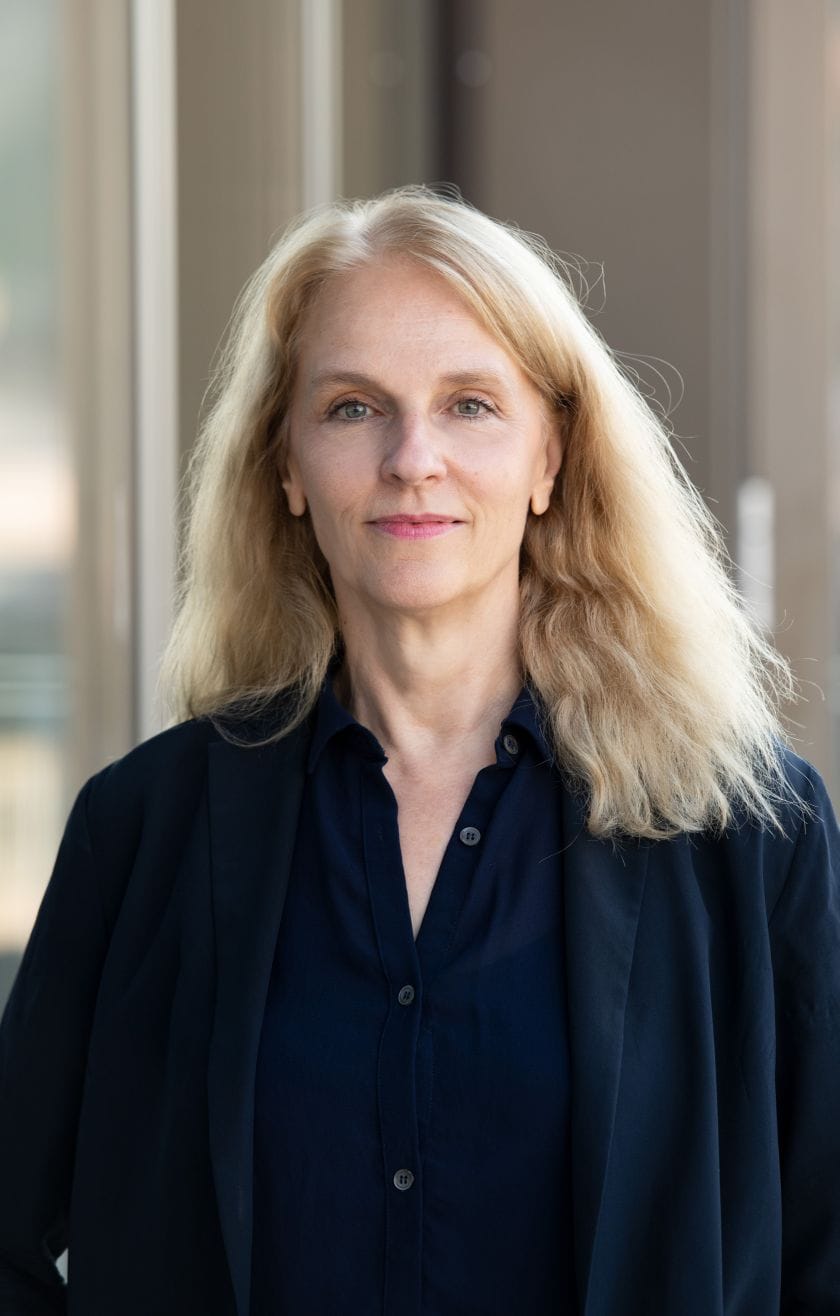“Words live longer than deeds.”
„I learned a lot about structural inequalities.“

Bettina Hering, the Salzburg Festival’s director of drama, on readings and evenings of “Investigations”.
This year, the readings allow the audience to get to know artists such as Max Reinhardt, Max Frisch, Ingeborg Bachmann, Jean-Paul Sartre and Bert Brecht through their letters and personal writings. Are you expecting any surprises?
The readings have a clear concept: on the one hand, there are three sets of correspondence, which I am presenting with the idea that here are three 20th-century couples with a strong influence on theatre – Max Reinhardt and Helene Thimig –, literature – Ingeborg Bachmann and Max Frisch –, and philosophy – Simone de Beauvoir and Jean-Paul Sartre. In very different circumstances, in different phases of their lives, over shorter or longer periods of time. Through happy, tragic, passionate, desperate, amusing and reflective moments. These three correspondences are read by three generations of actresses and actors who were and are currently essential for film and theatre; some of them played major roles at the Salzburg Festival, also during my tenure as director of drama. These are Edith Clever and Tobias Moretti, Lina Beckmann and Charly Hübner, and Paula Beer and Albrecht Schuch. We learn new, unheard-of, surprising things about the iconic artists whose letters are being read – this will expand our view of their output and inform us about their times and the circumstances of their lives. There are aspects which show these exceptionally innovative personalities in their private lives – both how they lived day-to-day, but also from a critical point of view.
The evening Angela Winkler presents with the delian::quartet is totally different. Bertolt Brecht’s literary texts shine on their own and jive perfectly with the music. Nothing could better complement our production of Der kaukasische Kreidekreis performed by Theater HORA.
The Second Sex by Simone de Beauvoir is presented in a marathon reading – what makes such a format attractive to you?
On the one hand, this marathon reading resulted directly from the programme of readings, which concludes with Sartre and Beauvoir. Beauvoir’s unique, seminal work The Second Sex, a kind of definition, or positioning, of women in 1949, is a must-hear. And it must be heard today, so that we in turn can define and position ourselves: how far have we come, have we even achieved anything? A marathon reading gives the audience a chance to take its time, to truly engage with a text which one might not want to read on one’s own. And in this case, 14 wonderful women are reading, all of whom have been companions to the Festival and me: what could be better?
Which kind of texts can we expect from the Investigation evening Frauen Literatur – abgewertet, vergessen, wiederentdeckt (Women’s Lit – Denigrated, Forgotten, Rediscovered)? Which of them were discoveries even for you?
The eponymous book by Nicole Seifert was an eye-opener in several ways. Even though I am an avid reader and no stranger to the literature scene, I learned a lot about structural inequalities and what they meant to individual female writers. In conversation with the director Helgard Haug, who writes most of her theatrical texts herself, many issues will be aired that will surprise the audience. Then there are also some female authors one might simply get to know – and should know.
Masha Gessen’s book The Future is History illuminates Russian society from the Post-Soviet years to today’s Putin regime. Will the author also be available to discuss the current situation after her reading?
I cannot answer that question yet. I am delighted that Masha Gessen honours us with her visit, and incredibly happy that she accepted our invitation to speak.
How personal will the Investigation on “Farewells” be for you? After all, you will say your own farewell to the Salzburg Festival after this season…
Carolin Emcke, who has agreed to curate this evening, has become a friend due to our collaboration at the Salzburg Festival. For me, this makes it a very attractive confluence of personal and professional life. The fact that six wonderful current authors are thinking about farewells and writing new texts for this event, and that Senta Berger, whom I like very much and who is such a wonderful actress and reader, will also read Ilse Aichinger and J. D. Salinger, will make my personal farewell easier. As the Greek poet Pindar said, “Words live longer than deeds.”
Interview: Theresa Steininger
Translation: Alexa Nieschlag
First published on 20.05. 2023 in Die Presse Kultur Spezial: Salzburger Festspiele
